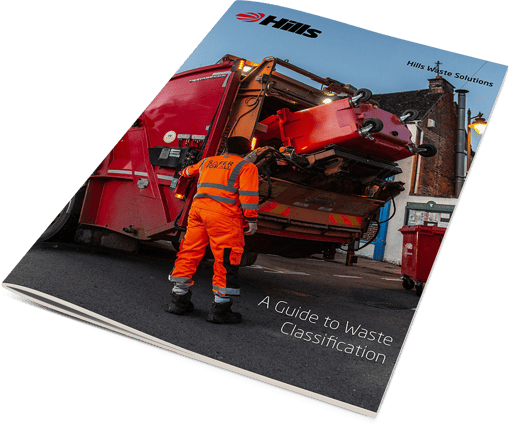.jpg?width=1800&height=600&name=banner-food-waste%20(1).jpg)
Commercial Food Waste collection
Transform your business food waste into renewable energy and organic fertiliser with our commercial food waste disposal services.
CREATE YOUR ONLINE QUOTE NOW
Switch to Hills Waste Solutions in under 10 minutes
- 97% service reliability
- 4,000 businesses in our community
Don’t waste your food
Food waste is produced by most businesses, from cafés and restaurants to office canteens and employee meals. Forthcoming legislation means that businesses can no longer send their food waste to landfill. Food waste must now be recycled, helping to reduce your carbon footprint and boosts your waste recovery rate.
All the food waste we collect is processed locally at an Anaerobic Digestion (AD) Plant, utilising cutting-edge technology to convert food waste into renewable energy and organic fertiliser.
Locations served
- Amesbury
- Andover
- Bath
- Bristol
- Cirencester
- Chippenham
- Devizes
- Faringdon
- Frome
- Malmesbury
- Marlborough
- Newbury
- Portishead
- Salisbury
- Shaftesbury
- Swindon
- Trowbridge
- Tidworth
- Warminster
- Weston-Super-Mare
- Yate
What do we classify as Food Waste?
Commercial food waste, also known as kitchen or canteen waste, includes:
- Kitchen and food waste (both packaged and unpackaged)
- Category 3 animal by-products (packaged and unpackaged)
- Drink waste (packaged and unpackaged)
- Bread and bakery products
- Fruit and vegetables
- Residues from food production
- Bones, fat, and meat (both raw and cooked)
Suitable bins
What happens to your Food Waste?
Food waste is shredded and mixed with bacteria for processing
Over 90 days, methane gas is captured and sent to the grid
The remaining material is used to produce organic fertiliser for agriculture
Frequently asked questions
-
What is Food Waste?
Food waste refers to organic, biodegradable material derived from food products. This includes offcuts from food production, expired or uneaten food, and by-products such as vegetable peels, egg shells, and tea leaves. Whether created during food preparation or due to spoilage, commercial food waste recycling ensures these materials are reused rather than discarded.
-
Does Food Waste harm the Environment?
Yes, improperly disposed of food waste can harm the environment by releasing harmful greenhouse gases, such as methane when sent to landfill. To mitigate this, Hills Waste Solutions offers a dedicated food waste collection service, converting food waste into renewable energy through our food waste recycling process. This helps reduce your carbon footprint while preventing environmental damage.
-
What is not included in Food Waste?
We accept food waste packaged in plastic and cardboard, but cannot process food waste presented in glass or tin, as these materials are not suitable for recycling at our facility. Non-organic or non-biodegradable items should be separated from food waste and disposed of accordingly.
-
How is Food Waste disposed of?
Hills Waste Solutions ensures that 100% of the food waste we collect is recycled. Through our commercial food waste collection service, food waste is processed via anaerobic digestion. This innovative technology converts food waste into renewable energy, while the residual material is transformed into organic fertiliser, benefiting local agriculture.
-
Why is recycling Food Waste important?
When food waste breaks down naturally in landfills, it releases methane, a potent greenhouse gas. Although small amounts of waste might seem insignificant, the cumulative effect of food waste across the UK can cause serious environmental harm. By using anaerobic digestion, we capture and convert this methane into electricity, turning harmful emissions into valuable energy and reducing the environmental impact of food waste.
Download our Waste Classification Guide
We’re here to make your life easy, so why not download our full Waste Classification Guide including detailed lists of what can and can’t be accepted for all our waste services.

.png)